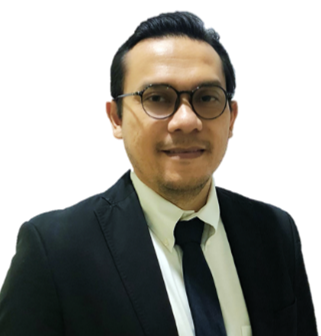Knowledge Exchange between Surabaya and Bali to improve earthquake resilience
During the Global Platform Disaster Risk Reduction (GPDRR 2022) event, the Bali Provincial Government and the Bali Disaster Risk Reduction Forum, the Department of International Team (DIT) and the Foreign, Commonwealth and Development Office (FCDO) approached the GFCP team to explore the possibility of conducting a sharing session with Bali, regarding the Surabaya Earthquake Resilience Intervention.
As a result, a follow-up workshop was organised in Bali on the 30th of May. The workshop was warmly received, with 44 participants on-site and 20 online professionals, including Representatives from BAPPENAS (Ministry of National Development Planning of Indonesia), the Surabaya government, UN-Habitat, and the UK Business Resilience Task Force.
The Surabaya Government, represented by the head of the Disaster Management Agency of Surabaya, started the knowledge exchange by sharing their experience in developing the Surabaya Disaster Risk Assessment. The Surabaya Disaster Risk Assessment covered all types of disasters, including earthquakes, and its development was facilitated by the National Disaster Management Agency (BNPB).
Following the sharing by the Surabaya government, the GFCP team then helped to focus attention on the risk assessments for earthquake disasters, which helped drive discussions towards the development of an earthquake resilience strategy.
Experience-sharing workshop was conducted in Bali on the 30th of May 2022, aimed at turning Bali into an earthquake-resilient city
The GFCP team highlighted how the GFCP helped Surabaya Government to produce the earthquake risk assessment as the basis to develop a Mitigation Strategy, Response Strategy and Recovery and Build Back Better Strategy. This technical assistance has helped the government of Surabaya to fulfil National regulations regarding minimum required services for Local Disaster Management (Permendagri 101/2018). In addition, through this support, GFCP and the Government of Surabaya have managed to develop a pilot project which involved planning an inclusive evacuation route for the YPAB School for the Blind and developing the e-learning programme to raise community awareness of seismic hazards.
The knowledge exchange then continued with a presentation from the Bali Provincial Government, represented by the Secretary of the Bali Province Disaster Management Agency. In this presentation, the Secretary identified the sources of Bali’s earthquake risks from geological faults.
Bali has a medium-level earthquake risk, as Bali is located between two faults: in the South of Bali, the Indo-Australian Plate sinks under the Euro-Asia plate, which occurs in the Indian Ocean South of Bali (First Hazard); and in the north of Bali, due to the Indo-Australian plate, active back-arc thrust faults have emerged which are the generators of destructive earthquakes in North Bali (Second Vulnerability). In summary, Bali’s earthquake risks result from its 26 geological faults.
The Bali Provincial government also shared that they have applied four pillars of Disaster Risk Reduction, which are: (i) Regulation; (ii) Local wisdom; (iii) Collaboration; and (iv) Technology. Given the importance of tourism in the local Balinese economy, consideration of the tourist industry has also been mainstreamed in Bali’s Disaster Risk Reduction program. For example, Disaster Resilience Hotel, Tourism Disaster Resilience Certification, and Disaster Simulation Day.
The knowledge exchange continued with the presentation from the Bali Disaster Risk Reduction (DRR) Forum, represented by its chairman. He highlighted the DRR forum’s role in actively supporting the Bali government in developing the Bali Resilience Concept.
As part of the knowledge exchange, the UK Business Resilience Task Force, represented by the Global Head, Public Sector Solutions Practice, and Chairman of AON Reinsurance Solutions, were also sharing their experiences on disaster risk insurance. Both highlighted topics ranging from climate and disaster risk finance, infrastructure investments and resilience, to cyber and terrorism risk management.
The event concluded with recommendations on key next steps toward a Resilient Bali.
The interest from the Bali Government indicates that the work being done by the GFCP is gaining interest around Indonesia. The Surabaya Earthquake Resilience Intervention is a project that has the potential to be upscaled and developed in other areas in Indonesia, given its geographical location on the Pacific Ring of Fire. We believe that by sharing our experiences, we will have more opportunities to improve Indonesia’s earthquake resilience, for the benefit of Indonesians.
Partner
Mott MacDonald (MM)
Country
Republic of Indonesia
City
Surabaya
Themes
Risk & Resilience
Author(s)

Fany Wedahuditama
Project Coordinator, Earthquake Resilience and Preparedness Strategy Intervention, Global Future Cities Programme, Surabaya, Indonesia